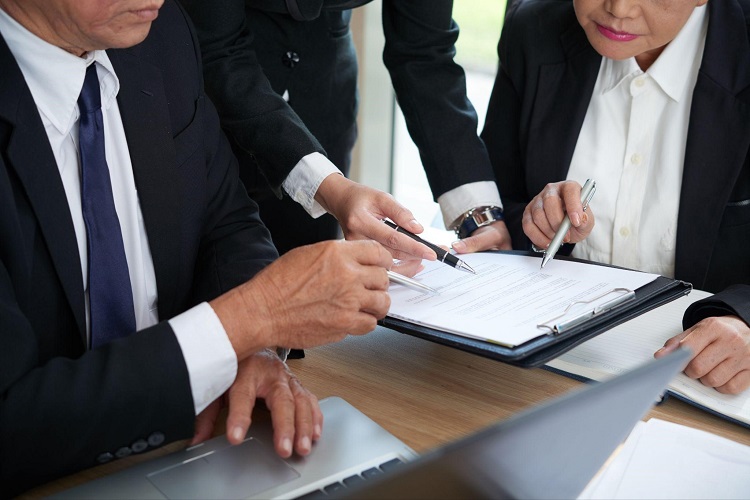After an accident, meeting with a personal injury attorney can be crucial to seeking compensation. However, entering that first consultation without the correct documentation or understanding can delay your case or weaken its foundation. To make the most of this initial meeting, you must arrive organized, informed, and ready to answer questions accurately.
Before you contact a personal injury lawyer in Atlanta, gather the appropriate legal, medical, and factual materials that support your potential claim. A lawyer will evaluate whether you have a viable case based on evidence, timelines, and available liability information. Being prepared will help streamline that process and increase your chances of securing strong legal representation.
Table of Contents
Collect All Medical Records and Related Documentation
Medical records are central to any injury claim. Bring all available records detailing your diagnosis, treatments, prescriptions, and any hospital visits related to the accident. This includes emergency room reports, physical therapy notes, diagnostic imaging results (like MRIs or X-rays), and specialist referrals.
You should also gather copies of medical bills and receipts for out-of-pocket expenses. These documents help the attorney assess the severity of your injuries and calculate compensatory damages. Obtain written provider estimates to establish ongoing care needs if future treatments are anticipated.
If you’ve received care from multiple providers, request a timeline or summary of treatment dates. A comprehensive medical chronology allows attorneys to link your injuries clearly to the incident.
Organize Accident Reports and Witness Information
Injury claims often rely heavily on third-party reports and witness statements. If law enforcement or emergency services responded to the scene, secure a copy of the official accident report. Police narratives often document fault indicators, citations issued, and contact details of involved parties.
In cases where no police were present, such as slip-and-fall incidents on private property, note the incident location, date, and any internal reports made to management or property owners.
Write down the names, phone numbers, and addresses of anyone who witnessed the event. Firsthand accounts from neutral observers can significantly strengthen your claim and may later serve as deposition or trial witnesses.
Retain Photographs, Videos, or Physical Evidence
Visual evidence often carries significant weight. Bring any photographs or videos from the scene, including vehicle damage, injuries, environmental hazards, or weather conditions. Timestamped images help validate the facts and protect against future claims of fabrication.
If you’ve kept any physical items—like damaged clothing, broken devices, or defective products—mention them during the consultation. These items may be physical exhibits or help prove causation in product liability cases.
Whether visual or tangible, preserving evidence in its original form strengthens your legal footing and demonstrates diligence in pursuing your case.
Compile Employment and Income Loss Documentation
When an injury interferes with your ability to work, you may be entitled to recover lost wages or diminished earning capacity. Prepare recent pay stubs, tax returns, and employer correspondence detailing time missed due to the injury.
A statement from your employer outlining your job duties, salary, and the duration of your absence can help quantify economic losses. If your doctor provided work restrictions, bring those recommendations to show how your injury directly impacted your employment.
Prepare a Personal Statement and Timeline of Events
Writing a narrative of what happened, in your own words, can serve as a helpful reference during your consultation. Include details such as the time of day, location, environmental conditions, who was present, and what happened immediately before and after the injury.
Document how the injury has impacted your daily life, such as sleep disruption, mobility limitations, or emotional distress. Your narrative helps the attorney understand the human side of your claim and may become the basis for non-economic damage calculations later.
Creating a clear, chronological timeline of all relevant events—from the incident date to follow-up treatments—helps ensure nothing is overlooked during the legal evaluation.
Review and Bring Any Insurance Correspondence
If you’ve already communicated with insurance companies—your own or the defendant’s—bring copies of all letters, emails, and claim forms. Include your policy declarations page if your coverage might apply.
Statements made to insurers, even informally, can shape how adjusters approach your case. A personal injury lawyer must understand what has already been said or promised. If you received a settlement offer, record the details and bring supporting documentation, even verbally.
Avoid signing releases or accepting payments before consulting with an attorney, as this may limit your right to pursue further legal action.
Understanding Legal Concepts Before the Meeting
Although you’re not expected to be an expert, basic familiarity with legal principles like negligence, liability, and damages will help you participate more actively in the consultation. Learn the difference between economic and non-economic damages, or how comparative fault may apply in Georgia.
When you contact a personal injury lawyer in Atlanta, you should also be prepared to discuss the statute of limitations. In Georgia, most personal injury claims must be filed within two years of the incident. Understanding this timeline helps emphasize urgency and prevents loss of legal rights due to delay.
Setting the Stage for an Efficient Legal Evaluation
An injury consultation is not simply a conversation—it’s the foundation of your potential legal case. The more information and documentation you provide, the better positioned your attorney will be to advise you, assess the viability of your claim, and develop a strong legal strategy.
Proactive preparation saves time, increases credibility, and helps identify legal hurdles early. Thorough readiness signals your commitment and empowers your attorney to advocate from a position of strength.

